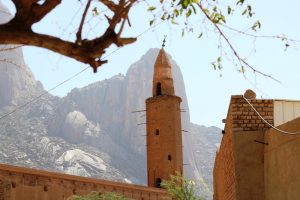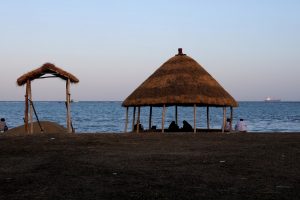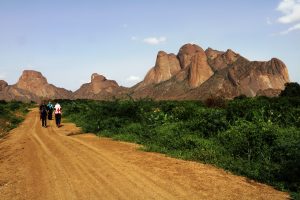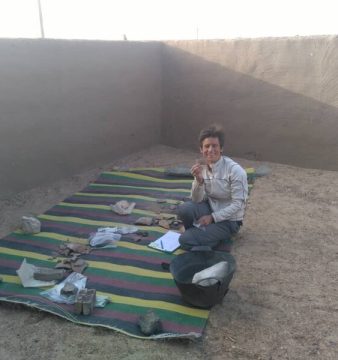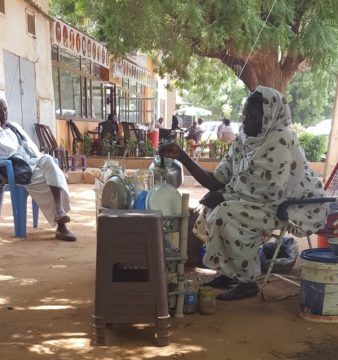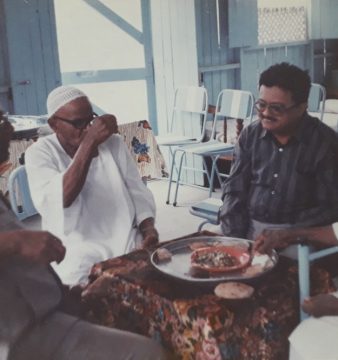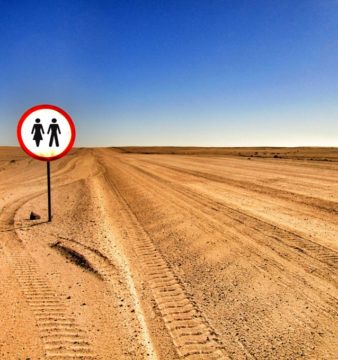Sudan: My Somewhere Else
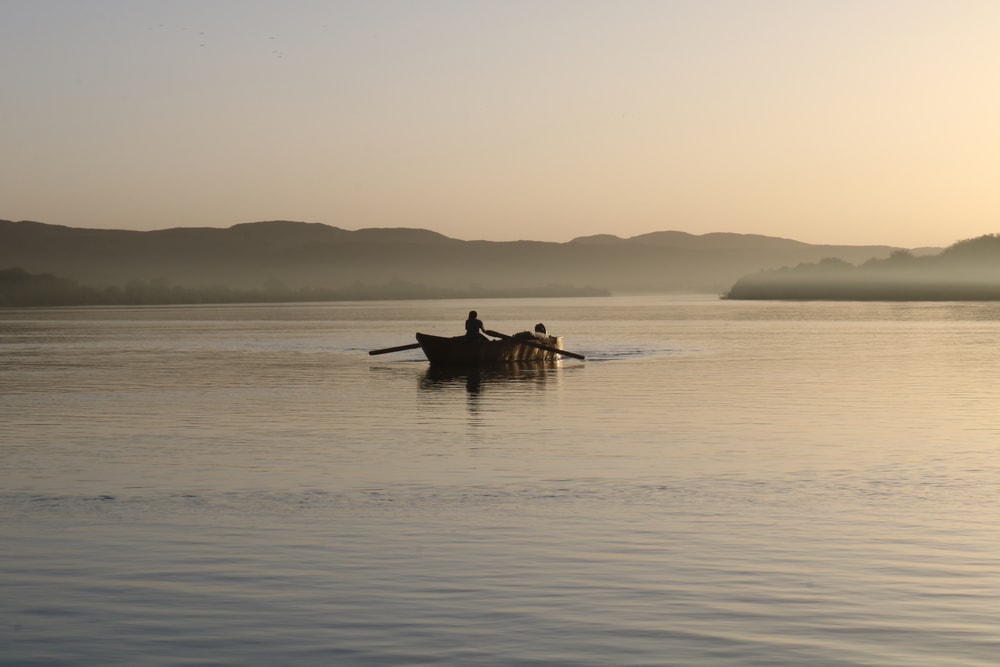
Sabaloga; Image credit: Zee Zahnur
People believe that paradise is always somewhere else. Sudan is my somewhere else.
I was born and grew up in a small village in Java, Indonesia where the mountains are blue and the lands are green. Throw a seed by your feet and it grows. Anything grows. You are never really far away from water. You are never really far away from trees. So, for the most part of my life, my world was predominantly blue and green.
And then in January 2017, my job took me to Khartoum. I am a trained teacher and I signed a contract with a British-based language school in Khartoum. My husband is a writer so he follows me wherever I go. I had never been to Africa, so I was excited. I did some research on Sudan but most only portray the war, malaria outbreaks and occasionally, government protests. I could not find many street photos. I was looking to decide what I should pack. I knew it could get hot, but I was in the middle of winter in Europe then. I would need a new set of clothing.
First memories
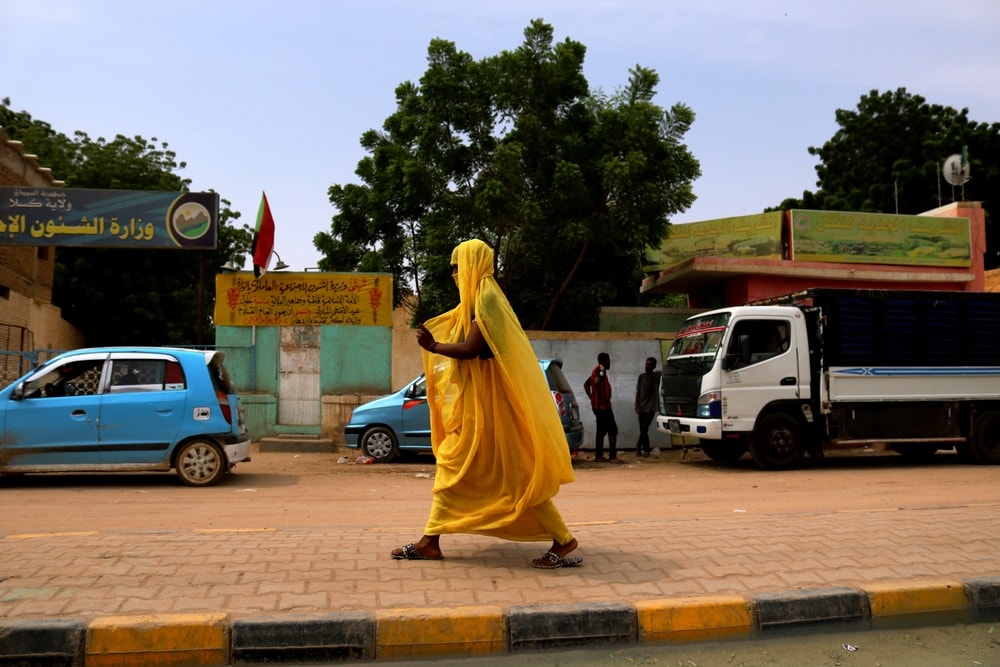
Kassala Street; Image credit: Zee Zahnur
On 20 January 2017 at 2 am, we landed at Khartoum International Airport. My first memory of it was the neglected immigration booths, grey walls, people jumping queues and the smallness of the airport. My colleagues picked us up and took us to our surprisingly spacious apartment with a very comfy bed. We each brought only a very thin jumper thinking Sudan would be hot. But we felt cold!
It must have been a post-haboob time that first week we arrived because the dust just seemed to be hanging in the air and wouldn’t go away. But at night, when the lights from cars pass through it, people who walk on the narrow streets always look like dancing glowing-shadows. That’s one of the things I have and will always remember Sudan by.
The colour of Khartoum was strikingly bland. Everything looked like a monochrome of desert colour — the streets, buildings and trees. And then one morning on the way to work, I saw a woman wearing a bright red piece of cloth hunching over a charcoal stove after which I told my husband, ‘We have to go there!’ I discovered later that she was a tea lady or sit al shay, which is what Sudanese called them. For days, before work became hectic, we always went to the tea lady. I think that was how our ‘love story’ with our tea ladies began. They are the sources of inspirations for my husband’s writings and we both were deeply touched by their kindness and fierceness. Amna, one of the tea ladies we knew, is divorced and raises her children on her own. She works 12 hours a day and yet, her smiles never wither when she sees us.
The teacher and the students
At work, I started teaching more and I spent most of my time in classrooms, and I absolutely loved my students. They are eager to learn. They are funny, interested in other cultures and genuinely interested in me as a person. When I told them I used to live in Bali — a paradise to many people in Sudan — they shockingly asked, ‘Why did you come here?’
But then as the months went, I realised that there is a sense of hopelessness in them, and that was very frustrating. One day I told my students, ‘Why do you never open the window blinds?’ ‘It’s hot out there, teacher,’ they answered. I asked, ‘Is there anything you could do about it?’ They thought I was joking and said, ‘To change the weather? No, we don’t think so.’ I said, “You can’t change the weather, but you can plant trees!” Then they said nothing.
Most of my students want to leave Sudan, for them the paradise is unquestionably not in Sudan. And as much as I understand how extremely challenging life is in Sudan, I feel that change could only happen when individuals believe that there is always something they can do to improve their lives.
To make matter worse, I started to realise how hot Sudan can get. The scorching summer was unbearable and when the power was out, without fans or ACs, I would lie flat on the floor tiles to cool my body down. I could not even have a shower because the water from the pipes was simply boiling. I thought I wouldn’t last very long in Khartoum so one day I asked my good friend Yousra, ‘How do you deal with the weather?’ and she wisely said, ‘We don’t. We just know when to leave the house and when not to.’ That was the best life advice I have ever got in my life.
Traveling Sudan
- Sofi Tomb Image credit: Zee Zahnur
- Port Sudan Totil Mountain
- Total Mountain, Kassala Image credit: Zee Zahnur
But it’s not all despair and struggle. When I have breaks, we travel outside of Khartoum, and I love the colours of Sudan. Our favourite town is Kassala. I spent hours interacting with women in the Sufi tomb of Hassan while taking their pictures. We would spend the evening sitting in a ful shop owned by a Sudanese man named Ahmed — most of the time for free due to his kindness.
I love Port Sudan, too. Sitting by the pier enjoying Egyptian food, and going around the souq under the arches of the colonial buildings is a unique experience.
We had an amazing time going camping in an unnamed island just an hour boat ride from Sabaloga. We swam in the Nile River, grilled fish bought from the fishermen, and I saw the most beautiful mist when the sun set.
And we feel in love with Naqa’s Temple of Amun for its serenity.
Time to leave
But time was finally up for us. After 20 months in Sudan, I am stationed back to Asia, and on the last day, I went to Omdurman with two of my kindest students, Ayaa and Duaa. They took me to meet the family, and then together we walked around Souq Omdurman to buy spices. Afterwards, we drove into the dusty Sudan sunset holding the rapidly melting popsicles or dardomas as the Sudanese call them.
I am now sitting in a restaurant surrounded by the greenery of Eucalyptus, Tamarind, and Bamboo trees back in Asia. I am watching CNN and saw the weather forecast of Khartoum. It’s 31 degrees today there and my heart aches. I came knowing nothing of Sudan and left knowing so many wonderful people and I can’t stop thinking, ‘They would have loved the colours I see!’
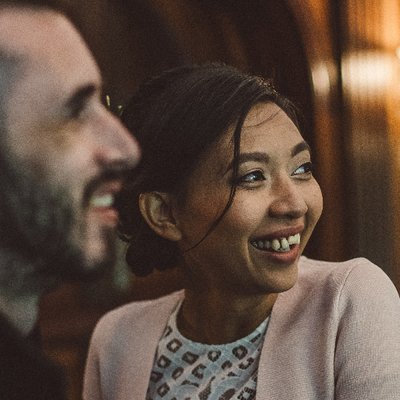 Zee Zahnur is a teacher and lived in Sudan throughout 2017 and 2018. Studying Education and International Development at UCL-London, she currently lives in Myanmar with her husband. She loves travelling and photography. Follow her on Twitter @zeezahnur. zeezahnur@twitter.com
Zee Zahnur is a teacher and lived in Sudan throughout 2017 and 2018. Studying Education and International Development at UCL-London, she currently lives in Myanmar with her husband. She loves travelling and photography. Follow her on Twitter @zeezahnur. zeezahnur@twitter.com

